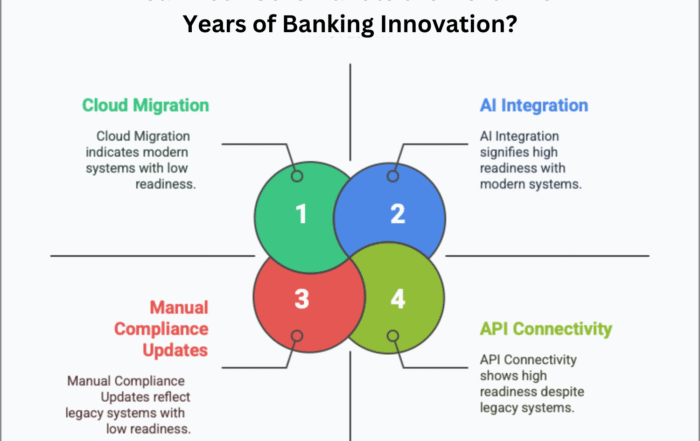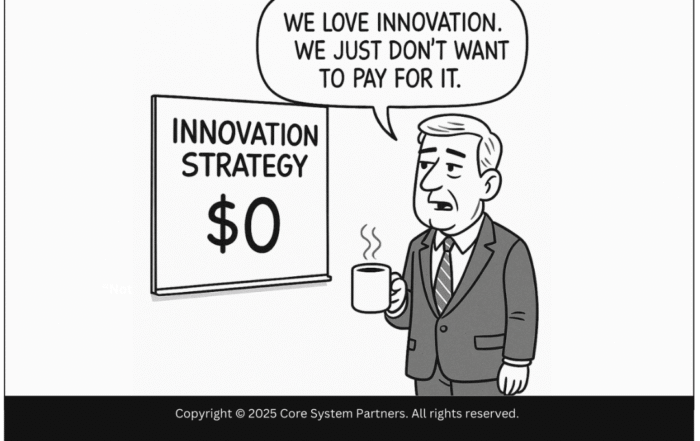Vol 4 / 10

Resistance to change is a significant barrier in core banking transformations, often overlooked by bank CEOs. Such transformations demand extensive adjustments to processes and systems, leading to discomfort and opposition among employees, customers, and other stakeholders. Common concerns voiced include:
“We’ve always done things this way; why do we need to change?”
“They are trying to eliminate our jobs.”
“I’m retiring in two years; I don’t need all this extra work.”
This resistance may stem from cultural norms or entrenched group think, with the reality of such opposition seldom reaching the C-level executives. Successfully managing and addressing this resistance is crucial for the success of the transformation.
Resistance can manifest in various ways, such as skepticism, fear, and outright opposition. Employees might doubt the benefits of the transformation, hesitating to embrace new processes and systems. Customers may worry about how these changes will affect their banking experience, showing reluctance towards new technologies or services. Additionally, regulators and technology vendors might express concerns about the transformation’s impact on the wider financial ecosystem.
Effectively managing resistance involves strategic communication and engagement with all stakeholders. This means transparently discussing the reasons for the transformation, what benefits are expected, and how it will impact each stakeholder group, while also actively seeking their input and feedback.
Adopting practical change management strategies is another crucial step. This could involve implementing training and support programs designed to help stakeholders understand and adapt to new systems and processes. Ensuring that necessary resources are available can facilitate smoother transitions and acceptance of the change.
Moreover, flexibility and adaptability are vital attributes for organizations undergoing transformations. Being receptive to feedback and willing to modify the transformation plan based on stakeholder input can significantly enhance the effectiveness of the change process.
In conclusion, addressing resistance to change is not just about enforcing new ways of working; it’s about understanding, managing, and guiding stakeholders through the transformation journey. By employing thorough communication, practical change management techniques, and adaptive strategies, organizations can overcome resistance and successfully realize their transformation goals.
If you would like to see the full list of Why Core Banking Transformations Often Fail click the link.
Found this article interesting? Check out these three related reads for more.
- Why Core Banking Transformations Often Fail
- Series (5/10): Why core banking transformations often fail – Technical challenges
- 10 reasons why core banking transformations are not just IT projects
#CoreBankingTransformation #ChangeManagementBanking





